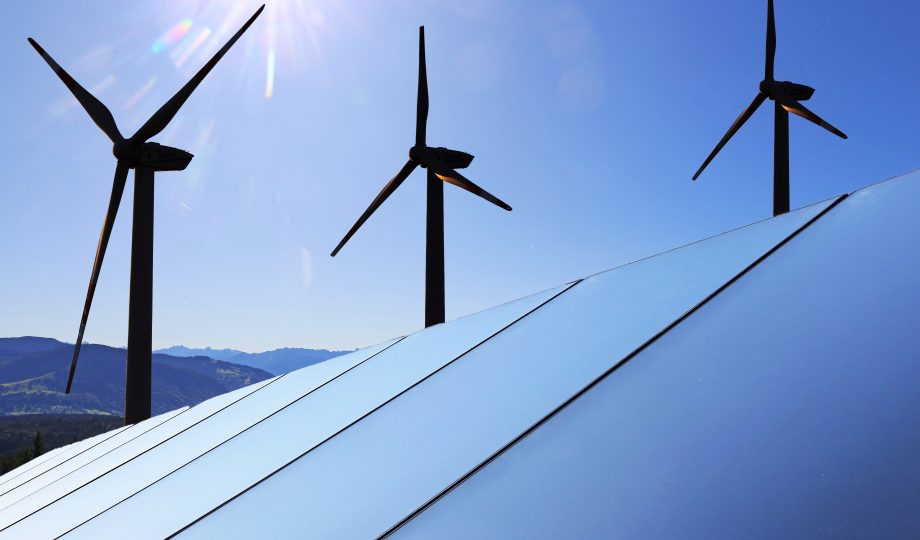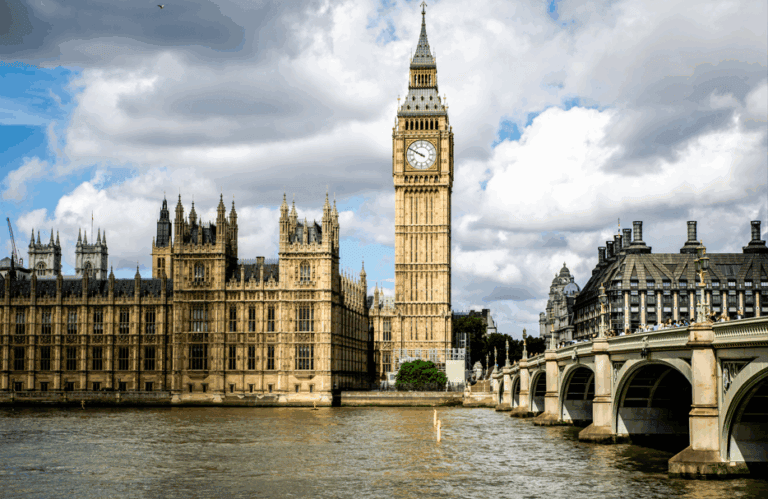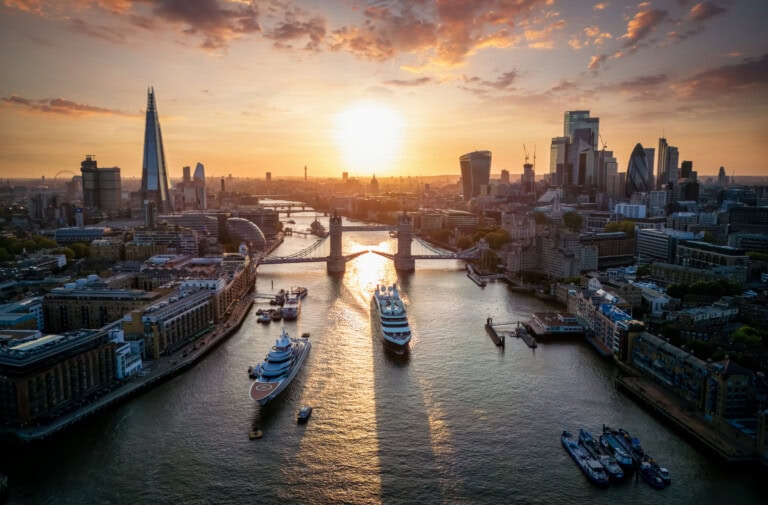UKGBC responds to Kemi Badenoch's speech on oil and gas expansion

In a speech to offshore energy executives in Aberdeen today, Tory leader Kemi Badenoch criticised Labour for treating the North Sea as a “relic of the past.” She instead insisted it should become a “cornerstone of Britain’s Future,” pledging to reinforce Scottish oil and gas production as central to the UK economy.
She announced plans to revoke fossil fuel promotion brands and reorient regulatory mandates, effectively vowing to position the sector at the heart of Britain’s economic and energy strategy.
Simon McWhirter, Chief Executive of the UKGBC, said:

Kemi Badenoch is completely wrong to make claims that doubling down on new oil and gas is the answer, or that net zero is ‘impossible’ and unaffordable when all the evidence shows the opposite.
This unfounded rhetoric is not only reckless for the climate it’s also the fastest way to lock households into higher bills and greater energy insecurity which is driven by our dependence on volatile global gas prices. Fossil fuels are the reason energy costs have soared, while renewables are now the cheapest source of power we have.
To burn more fossil fuels will lock in a future of worsening floods, deadly heatwaves, and wildfires which have scorched parts of Europe this year. To advocate for a policy which puts people’s homes, health and livelihoods in danger is wildly irresponsible.
The path to genuine energy security, lower bills, warmer homes, and hundreds of thousands of quality new jobs is renewable energy, clean heating, and modern low-carbon industries.
Delaying net zero and investment into renewables will be more expensive and more dangerous in the long run. What we need from opposition policies is leadership to accelerate investment into the industries of the future, championing the ground breaking business-led innovation that is taking place across the UK, not political point-scoring which takes us backwards.”
Further Analysis from UKGBC’s Policy Team
The shift to clean energy isn’t a cost burden, it’s an enormous opportunity. Clean power and electrified heat and transport reduce dependence on volatile fossil fuel imports and carry long-term savings for households and communities. The CCC projects that by 2050 households could save £700 a year on heat and power. The International Energy Agency (IEA) likewise finds that a net-zero transition would make energy systems ‘more affordable and fairer’ with efficiency gains and lower fuel costs offsetting initial investment.
While we recognise the seriousness of the cost-of-living challenges British households face, the premise that achieving net zero by 2050 is ‘impossible’, or that it will bankrupt the country, has been widely contradicted. Independent analysis from the Climate Change Committee (CCC) shows the UK can transition to net zero in a ‘credible and deliverable’ manner, with total upfront investment of less than £700 billion by 2050 – substantially lower than earlier estimates – and operational savings of around £600 billion.
The alternative of continuing to rely on fossil fuels, would be far worse. The Office for Budget Responsibility (OBR) has warned that unchecked climate change could cost the UK up to 8% of GDP by 2050, and beyond the economic costs continuing to burn fossil fuels would risk locking us into a future defined by more wildfires, deadly heatwaves, and pervasive flooding. This poses a significant threat to health and household stability. Choosing fossil fuel expansion over clean energy isn’t protection, it’s putting current and future communities in danger.
As for high household bills, contrary to Badenoch’s suggestion that climate policies are the culprit, the evidence shows it’s our reliance on gas which is subject to global price swings that drives cost, not clean energy policy. The UK’s wholesale electricity prices are currently almost entirely dictated by the price of gas, which remains three times more expensive than before the global energy crisis. A UK renewables industry and increased clean supply would insulate households from volatile international gas markets.
At the same time, rolling back net-zero commitments denies the UK a vital economic opportunity. The transition to low-carbon sectors could create between 135,000 and 725,000 new jobs by 2030 across retrofit construction, renewables, and energy efficiency measures. Yet persistent policy uncertainty are hampering growth, and causing the UK to miss out on healthy, future-ready industries.
For businesses and the built environment this delay and scepticism are deeply damaging. It undermines investment confidence, stalls innovation, and holds back one of the biggest economic opportunities of our time. The built environment industry urgently needs certainty, not political backtracking. The clean energy future is not some distant fantasy – it’s already underway, and it’s already delivering real value. Delaying the inevitable only exacts a higher price.
We urge the Conservative Party to reverse course on this damaging rhetoric and instead join us in delivering a fair, confident, and affordable trajectory to net zero. By investing in insulation, scaling up heat pumps with real incentives, and embedding market drivers like a reformed stamp duty that rewards energy-efficient homes, we can deliver warmer homes, lower bills, stronger energy security, and significant economic growth.
Related

Embodied Carbon Summit 2025

UKGBC announces new Regenerative Places Framework Task Group

Taking Action for Consistent Early-Stage Embodied Carbon Measurement


